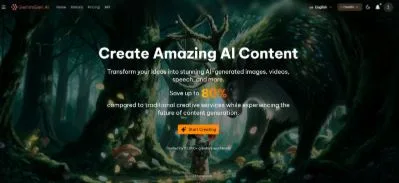What is a Gap Year Program and Why Take One?
The path from high school to college or a career used to feel like a straight line. Now, a growing number of students are choosing to take a detour—a gap year. This trend isn’t about taking a break from learning; it’s about redefining what learning looks like. A structured Gap Year Programs can offer experiences that a traditional classroom simply can’t, providing a year of growth, discovery, and preparation for the future.
This guide will explore the concept of a gap year program and highlight the transformative benefits it can offer. We will look at how these programs foster personal development, enhance academic performance, and provide a competitive edge in an increasingly complex world. By understanding these advantages, students and parents can make a more informed decision about whether this path is the right one.
What is a Gap Year Program?
A gap year program is a structured period of experiential learning, typically taken between high school and college. Unlike an unstructured “year off,” these programs are intentionally designed to facilitate personal growth, skill development, and global awareness. They can involve a wide range of activities, from volunteering abroad and learning a new language to participating in an internship or conducting field research. The core idea is to step outside the traditional academic environment to gain practical, real-world experience.
These programs are more than just a break from formal education; they are an extension of it. They provide a unique opportunity for young adults to explore their interests, challenge themselves in new environments, and develop a clearer sense of purpose before committing to a specific academic or career path. A well-designed program offers guidance, support, and a framework for students to maximize their time away from the classroom.
The Transformative Benefits of a Gap Year
Taking a structured gap year offers a multitude of benefits that can profoundly impact a student’s personal, academic, and professional trajectory. Recent data shows that students who participate in these programs often return to their studies with renewed focus and a greater sense of maturity. Let’s explore the specific advantages that make a gap year a valuable investment in a student’s future.
Enhanced Personal Growth and Maturity
One of the most significant outcomes of a gap year is the remarkable personal development participants experience. Stepping away from the familiar comforts of home and school forces students to become more independent, self-reliant, and resilient. They learn to navigate unfamiliar situations, solve problems on their own, and take responsibility for their daily lives. This process builds confidence and fosters a level of maturity that is difficult to achieve in a traditional academic setting.
Studies consistently show that students who complete a gap year program report higher levels of self-awareness and emotional intelligence. They develop a better understanding of their own strengths, weaknesses, and values. This introspection is crucial for making thoughtful life decisions, from choosing a college major to pursuing a career path that aligns with their passions. The challenges and triumphs of a gap year equip students with the soft skills—like adaptability and communication—that are essential for success in all aspects of life.
Improved Academic Performance
Contrary to the fear that a year away from school will lead to academic decline, research indicates the opposite. Students who take a gap year often enter college with a stronger sense of purpose and motivation. Having had time to explore their interests and gain real-world perspective, they are more engaged in their studies and less likely to experience academic burnout.
Data supports this trend. A significant percentage of students who take a gap year report that their experience had a positive impact on their choice of major. Furthermore, many students achieve a higher GPA in college compared to their peers who did not take a gap year. This academic boost can be attributed to the renewed enthusiasm for learning and the practical context students gain for their studies. They are not just learning theories from a textbook; they are connecting their education to the world around them. This deeper level of engagement often leads to more meaningful and successful academic careers.
Greater Clarity on Career and Life Goals
A gap year provides the time and space for students to explore potential career paths before making a long-term commitment. Through internships, volunteer work, or travel, they can gain firsthand experience in various fields and discover what truly excites them. This practical exploration can prevent the costly and time-consuming process of changing majors or career paths later in life.
Many students enter college with a vague idea of what they want to do professionally. A gap year program allows them to test their assumptions and either confirm their interests or discover new ones. This clarity is invaluable. Students who have a clear direction are more likely to choose a major that aligns with their goals and to pursue internships and other opportunities that will advance their careers. This focused approach gives them a significant advantage, both in college and in the job market after graduation.
Development of Global Citizenship and Cultural Competence
In an increasingly interconnected world, the ability to understand and navigate different cultures is more important than ever. Gap year programs, especially those that involve international travel or service, are instrumental in developing global citizenship. Students learn to appreciate diverse perspectives, communicate across cultural divides, and understand complex global issues from a firsthand point of view.
This experience fosters empathy, open-mindedness, and a sense of responsibility toward the global community. These are not just abstract values; they are practical skills that are highly sought after by employers. Companies and organizations are looking for individuals who can work effectively in diverse teams and understand the nuances of a global marketplace. A gap year provides a powerful and immersive education in cultural competence that prepares students to be leaders in a globalized world.
A Competitive Edge in College Admissions and Employment
While it may seem counterintuitive, taking a gap year can actually strengthen a student’s college application. Admissions officers increasingly recognize the value of the maturity, focus, and unique experiences that gap year students bring to a campus community. A well-articulated gap year experience can make an application stand out and demonstrate a student’s initiative and commitment to personal growth.
This competitive advantage extends to the job market. Employers value the soft skills and real-world experience that gap year alumni possess. Skills like problem-solving, cross-cultural communication, and adaptability are often developed more effectively through experiential learning than in a classroom. A resume that includes a productive gap year signals to employers that a candidate is mature, resourceful, and globally aware—qualities that are highly prized in any profession.
Charting Your Own Course
A gap year program offers a powerful opportunity for students to invest in themselves before embarking on the next chapter of their lives. The benefits—from heightened personal maturity and improved academic outcomes to clearer career goals and a distinct competitive edge—are well-documented and substantial. By stepping off the conventional path for a year of intentional, experiential learning, students can gain the skills, perspective, and confidence needed to thrive in college and beyond. It is an investment that pays dividends for a lifetime, shaping more focused, engaged, and capable individuals ready to make their mark on the world.




